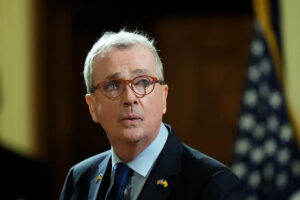
Congo and Rwanda Sign Landmark US-Mediated Peace Deal
WASHINGTON — The Democratic Republic of Congo and Rwanda on Friday signed a historic peace agreement facilitated by the United States, aiming to end decades of deadly conflict in eastern Congo. The deal, signed at the State Department’s Treaty Room, also positions the U.S. to gain access to critical minerals in the region.
Immediate Impact
“Today, the violence and destruction comes to an end, and the entire region begins a new chapter of hope and opportunity, harmony, prosperity, and peace,” President Donald Trump declared to the foreign ministers of the two nations during a White House meeting. Secretary of State Marco Rubio hailed the agreement as “an important moment after 30 years of war.”
More than 100 armed groups have been involved in the conflict, with millions of lives lost since the 1990s.
Key Details Emerge
The Central African nation of Congo has been embroiled in conflict with numerous armed groups, some of the most potent backed by Rwanda. While the peace deal marks a significant turning point, analysts caution that it may not immediately halt the fighting, as the prominent M23 rebel group claims the agreement does not apply to them.
The accord includes provisions on territorial integrity, prohibition of hostilities, and the disengagement, disarmament, and conditional integration of non-state armed groups.
By the Numbers
The United Nations describes the situation in Congo as “one of the most protracted, complex, serious humanitarian crises on Earth,” with 7 million people displaced.
Industry Response
Congo’s Foreign Minister Therese Kayikwamba Wagner and Rwandan Foreign Minister Olivier Nduhungirehe expressed cautious optimism, acknowledging the significant work ahead to end the fighting. Wagner emphasized the importance of respecting the agreement, stating, “Those who have suffered the most are watching. We cannot fail them.”
Nduhungirehe noted the “great deal of uncertainty” surrounding the implementation of the agreement, given past failures.
Role of International Partners
Both ministers, along with Rubio, praised Qatar’s role in facilitating the agreement. Doha has been working on the deal for months at the request of the U.S. and other stakeholders.
Background Context
The conflict in eastern Congo can be traced back to the aftermath of the 1994 Rwandan genocide, which saw nearly 2 million Hutus fleeing into Congo. The ongoing violence has resulted in the deaths of 6 million people, exacerbated by attacks, famines, and disease outbreaks.
Expert Analysis
Christian Moleka, a political scientist at the Congolese think tank Dypol, described the deal as a “major turning point” but warned it does not address war crimes or justice for victims. “This seems like a trigger-happy proposition and cannot establish lasting peace without justice and reparation,” he stated.
What Comes Next
The U.S. role in the peace process is seen as pivotal, with Congo hoping for security support to combat the rebels. The American commitment may hinge on mineral access negotiations between the U.S. and Congolese governments, with untapped resources valued at up to $24 trillion by the U.S. Department of Commerce.
In Congo’s North Kivu province, the hardest hit by the fighting, some residents believe the peace deal will help resolve the violence but insist that justice must be served for enduring peace.
Regional Implications
Rwanda has been accused of exploiting eastern Congo’s minerals, crucial for global technology, although it denies involvement. Analysts suggest this complicates Rwanda’s potential disengagement from the region.
The deal is central to the U.S. strategy to counter China’s influence in Africa, as Chinese companies have long been key players in Congo’s mineral sector.
As the peace agreement takes effect, the international community watches closely, hoping for a resolution to one of the world’s most enduring conflicts.
Asadu reported from Dakar, Senegal. Edith M. Lederer at the United Nations, Justin Kabumba in Goma, Congo, Ignatius Ssuuna in Kigali, Rwanda, and Mike Pesoli and River Zhi-Hui Zhang in Washington contributed to this report.



